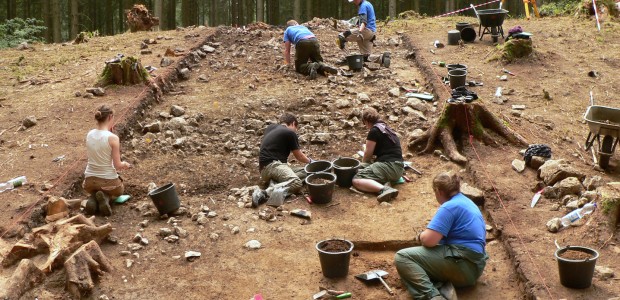British archaeologists have discovered what could be the oldest intact sample of metastatic cancer in a recently excavated skeleton. This meaningful discovery could offer fresh insight into this fatal form of cancer that is quite common today.
The archaeological team from the British Museum and Durham University found striking evidence of tumors which had metastasized through this 3,000 year old skeleton. The bones were uncovered last year in a tomb located in the Sudan.
The Mummy Had Metastatic Cancer
The team used advanced imaging technology and radiography, which produced an unobstructed view of the lesions on the bones. This individual’s cancer had spread throughout the body and produced tumors on the:
- Upper arms
- Shoulder blades
- Collar bones
- Ribs
- Thigh bones
- Pelvis
- Vertebrae

This discovery suggests that cases of cancer could be found in the Nile Valley at roughly the same time period that David was crowned king of the Israelites. From the skeleton, researchers surmise that it had been a man in his 20’s to 30’s. He was discovered inside a painted wooden coffin. The archeological team also uncovered numerous other skeletons at the Amara West site.
“Insights gained from archaeological human remains like these can really help us to understand the evolution and history of modern diseases,” explained Durham PhD student Michaela Binder. She led this archeological dig and examined the skeleton. “Our analysis showed that the shape of the small lesions on the bones can only have been caused by a soft tissue cancer … though the exact origin is impossible to determine through the bones alone.”
Cancer Isn’t Just a Modern Problem
Cancer is one of the leading causes of death in the modern world, but there is virtually no presence in the archaeological records compared to other common diseases. This has led to many theories that the incidence of cancer is largely linked to our modern day lifestyles and longer average lifetimes.
(Quick Fact: The World Health Organization estimates that cancer cases will reach 22 million a year in the next two decades.)
The discovery of a 3,000 year old skeleton who developed metastatic cancer show that these diseases are not only a modern issue but an ancient one too. Binder believes this will provide scientists with an avenue to investigate the incidence of cancer in ancient populations. It should also provide some clues as to how these diseases have evolved over time.
What Caused This Ancient Man’s Cancer?
Oncologists and other specialists will only be able to speculate on what may have triggered this young man’s cancer. Some leading theories that could explain this incidence would include:
- Genetic factors
- Environmental carcinogens such as smoke from a fire
- Infectious diseases like schistosomiasis
An infectious disease like schistosomiasis is one of the more plausible causes, given this particular illness was fairly common in Egypt and Nubia since 1500 BC. Current cancer clinical studies have shown that schistosomiasis can cause breast cancer and bladder cancer in men.
